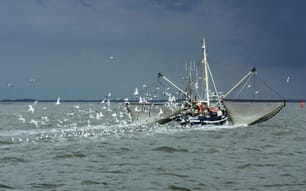“Our government is committed to sustainable and economically viable fisheries on the West Coast and across Canada,” said Minister Ashfield. “This licence retirement program will help commercial fishermen and coastal communities manage the recent reduction in the total allowable harvest of chinook off the West Coast of Vancouver Island under the Pacific Salmon Treaty.”
The $30-million mitigation strategy also includes an initiative to modernise the Department’s commercial salmon allocation framework and funds to support economic development on the West Coast of Vancouver Island. It is a key component of the chinook chapter of the Pacific Salmon Treaty (PST), which was renewed by Canada and the United States in December 2008. The mitigation programme is designed to reduce effort in the commercial salmon troll fishery and to protect and conserve weak Canadian and US chinook stocks.
Application packages are being mailed out this week to invite commercial salmon troll licence holders to submit bids to the Department for the permanent retirement of their licences. In the first round of the licence retirement program, the Department will accept bids from harvesters in the West Coast commercial troll fishery (Area G). A second round will be initiated in early March 2012 for all commercial troll licence holders (Areas F, G, H).
To ensure the bid evaluation process is fair and transparent, the Department has engaged an independent consultant to establish a fair market value for troll licences in the fishery. It has also held extensive consultations with commercial fish harvesters, stakeholders and First Nations on the mitigation program and licence retirement strategy.
Funding for the mitigation program was provided to Canada by the US under the treaty. Experts from both countries believe the harvest reductions implemented under the PST will result in significant benefits for chinook stocks originating in and co-migrating through the waters of both countries.
Licence Retirement Programme For Salmon Fishery
CANADA - The first round of a two-year, $28.5-million licence retirement programme has been launched by the Government of Canada. The programme aims to enhance the economic viability of the commercial chinook troll fishery off the West Coast of Vancouver Island.
by Lucy Towers



